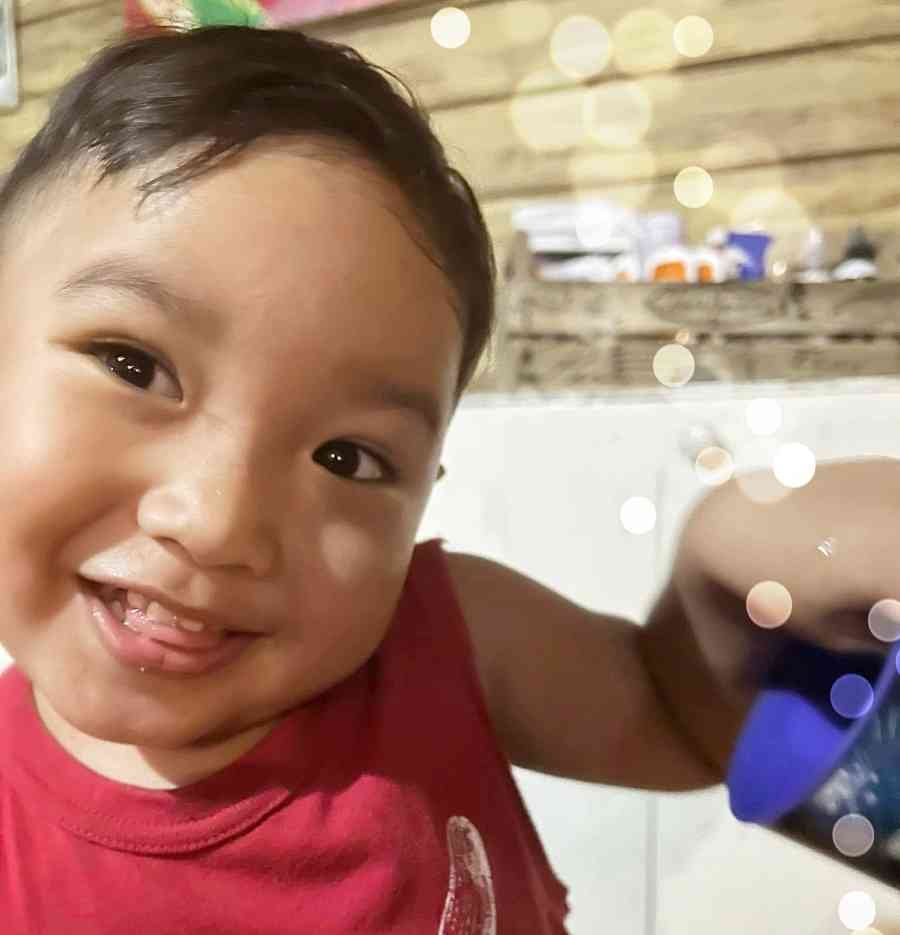
Emotional Intelligence in Toddlers
Nurturing Emotional Intelligence in Toddlers: A Guide for Parents
Being a mother to Ynzo, my 2-year-old son, has been an incredible journey filled with unique challenges and joys. Born during the pandemic, Ynzo’s early years have been different from his sister Abby’s, who is already in grade 2. With no playmates at home, it’s important for us to find opportunities for Ynzo to interact with other children and foster his social development. In this blog post, I’ll share our experiences and insights on navigating Ynzo’s temperament, encouraging healthy social interactions, and supporting his emotional growth.
Ynzo’s Social Needs: Ynzo’s journey has been distinct due to his lack of regular playmates at home. As parents, we recognize the importance of socialization for his overall development. Research has shown that early social experiences play a significant role in shaping a child’s social skills, emotional regulation, and cognitive abilities (Kochanska et al., 2011).
Understanding Ynzo’s Temperament: Unlike his sister Abby, Ynzo possesses a more demanding and entitled temperament. This makes it crucial for us, as parents, to navigate his needs while fostering empathy and appropriate behavior. Research suggests that temperament plays a vital role in children’s behavior and development, with certain temperamental traits influencing how they interact with others (Eisenberg et al., 2007).

Emotional Intelligence in Toddlers
Key Tips for Nurturing Emotional Intelligence:
This article provides practical tips to incorporate emotional intelligence into everyday life, empowering our children with crucial social and emotional skills. By focusing on emotional intelligence, we can help our toddlers navigate their emotions, build meaningful relationships, and thrive in various life situations. These tips were adapted from various scholastics papers we have studied to further our knowledge in support of our children.
- Create a safe and supportive environment:
Establish a nurturing space where your toddler feels secure in expressing their emotions. Encourage open communication and provide support during challenging situations.
- Model emotional intelligence:
Serve as a role model by demonstrating healthy emotional expression, empathy, and effective communication. Children learn by observing and imitating their parents.
- Teach emotional vocabulary:
Expand your toddler’s emotional vocabulary by labeling and discussing emotions. Encourage them to express their feelings and validate their emotions, promoting self-awareness and emotional literacy.
- Practice active listening:
When your toddler shares their feelings, practice active listening by giving them your full attention. Reflect on their emotions to demonstrate understanding and empathy, fostering a strong emotional connection.
- Problem-solving and conflict resolution:
Teach problem-solving skills and conflict-resolution strategies. Encourage assertiveness and guide them in expressing their needs, empowering them to navigate social interactions effectively.

Emotional Intelligence in Toddlers
- Foster social connections:
Provide opportunities for your toddler to interact with other children and develop social skills. Arrange playdates, enroll them in age-appropriate activities, and encourage positive peer relationships.
- Encourage self-regulation:
Support your toddler in managing their emotions and developing self-control. Teach calming techniques and help them express and manage their emotions appropriately.
- Celebrate achievements:
Acknowledge and celebrate your toddler’s emotional growth and milestones. Positive reinforcement motivates them to continue developing their emotional intelligence.
- Encourage empathy and perspective-taking:
Help your toddler understand the feelings and perspectives of others. Engage in discussions about different emotions and situations to develop empathy and promote kindness.
- Support emotional regulation through routines:
Establish consistent routines that provide a sense of stability for your toddler. Predictable schedules and rituals help them feel secure and develop self-regulation skills.

Emotional Intelligence in Toddlers
- Use storytelling and books:
Incorporate books and storytelling into your daily routine. Choose stories that focus on emotions, empathy, and social situations to enhance your toddler’s understanding of emotional experiences.
- Practice problem-solving through play:
Engage your toddler in pretend play scenarios that involve resolving conflicts or dealing with emotions. This allows them to practice problem-solving skills in a safe and creative environment.
- Encourage self-reflection:
Guide your toddler to reflect on their emotions and actions. Ask questions like, “How did that make you feel?” or “What could you do differently next time?” This promotes self-awareness and accountability.
- Foster a positive and supportive relationship:
Build a strong bond with your toddler based on trust, love, and understanding. A secure attachment provides a foundation for healthy emotional development.
- Be patient and understanding:
Remember that emotional intelligence takes time to develop. Be patient with your toddler’s progress, offer support during setbacks, and celebrate their small achievements.

Emotional Intelligence in Toddlers
- Encourage emotional expression through art:
Provide your toddler with art materials and encourage them to express their emotions through drawings, paintings, or crafts. This allows them to explore their feelings creatively and promotes self-expression.
- Teach problem-solving strategies:
Help your toddler develop problem-solving skills by teaching them strategies such as identifying the problem, brainstorming solutions, evaluating options, and choosing the best course of action. This helps them navigate challenging situations effectively.
- Model emotional intelligence:
Be a role model for your toddler by demonstrating emotional intelligence in your own actions and reactions. Show them how to express emotions in a healthy and constructive way and handle conflicts with empathy and understanding.
- Foster social interactions:
Provide opportunities for your toddler to engage in social interactions with peers, siblings, and other children. Playdates, preschool, or community activities can help them learn important social skills, including cooperation, sharing, and empathy.
- Celebrate and validate emotions:
Acknowledge and validate your toddler’s emotions, even if they seem intense or challenging. Let them know that it’s okay to feel a wide range of emotions and provide support and comfort when they need it.
- Create a safe and supportive environment:
Ensure that your home environment is safe, nurturing, and free from harsh discipline or negative interactions. A secure and supportive environment allows your toddler to feel comfortable expressing their emotions and seeking help when needed.
- Seek professional guidance if needed:
If you have concerns about your toddler’s emotional development or if they exhibit persistent difficulties in managing emotions, consider consulting a pediatrician, child psychologist, or mental health professional for guidance and support.

Emotional Intelligence in Toddlers
Remember, every child is unique, and their emotional intelligence develops at their own pace. Provide a loving and supportive environment, offer guidance, and celebrate their progress along the way. By fostering their emotional intelligence, you are equipping them with essential skills that will benefit them throughout their lives.
References:
- Denham, S. A., & Brown, C. (2010). “Plays nice with others”: Social-emotional learning and academic success. Early Education and Development, 21(5), 652-680.
- Brackett, M. A., Rivers, S. E., & Salovey, P. (2011). Emotional intelligence: Implications for personal, social, academic, and workplace success. Social and Personality Psychology Compass, 5(1), 88-103.
- Salovey, P., & Mayer, J. D. (1990). Emotional intelligence. Imagination, Cognition and Personality, 9(3), 185-211.
- Elias, M. J., Zins, J. E., Weissberg, R. P., Frey, K. S., Greenberg, M. T., Haynes, N. M., … & Shriver, T. P. (1997). Promoting social and emotional learning: Guidelines for educators. ASCD.
- Denham, S. A. (2006). Social-emotional competence as support for school readiness: What is it and how do we assess it?.Early Education and Development, 17(1), 57-8
- Jones, S. M., & Bouffard, S. M. (2012). Social and Emotional Learning in Schools: From Programs to Strategies. Social Policy Report, 26(4), 1-22.
- Brackett, M. A., & Rivers, S. E. (2014). Transforming Students’ Lives with Social and Emotional Learning. Phi Delta Kappan, 96(2), 56-61.
- Weissberg, R. P., Durlak, J. A., Domitrovich, C. E., & Gullotta, T. P. (Eds.). (2015). Handbook of Social and Emotional Learning: Research and Practice. Guilford Press.
- Denham, S. A. (1998). Emotional Development in Young Children. Guilford Press.
- Dunn, J., & Brown, J. (1994). Affect Expression in the Family, Children’s Understanding of Emotion, and Their Interaction with Others. Merrill-Palmer Quarterly, 40(1), 120-137.

Emotional Intelligence in Toddlers



Recent Comments